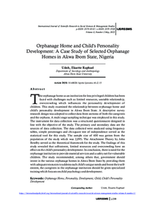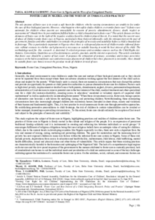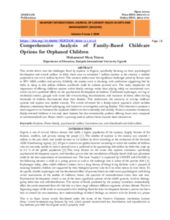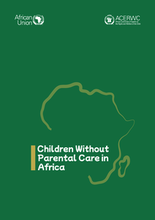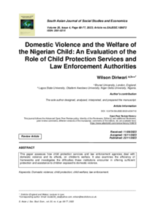childrens_living_arrangement
Displaying 11 - 20 of 136
The Ogun State Commissioner for Women Affairs and Social Development, Adijat Adeleye, has warned orphanage homes in the state against putting up children for adoption without getting the state government’s approval and clearance.
This study investigated how conditions in orphanages—such as limited resources, unstable relationships, and overcrowding—affect children’s personality development in Akwa Ibom State, Nigeria, using surveys of both caregivers and orphans. Findings showed that these factors negatively impact self-esteem and overall development, highlighting the need for greater government investment, adequate resources, and specialized caregiver training in child psychology and development.
As they walked through arrivals at Manchester Airport, a couple seemed to be behaving oddly towards their baby. Something did not sit right with Border Force officers.
This study found that parental poverty is a key factor pushing children in Akwa Ibom State, Nigeria into street life, where deprivation drives them to engage in delinquent activities such as theft, drug peddling, and begging. The findings highlight urgent gaps in child welfare and social protection, calling for targeted interventions to address poverty, improve access to education and healthcare, and strengthen support systems.
This article examines the challenges of foster care in Nigeria, highlighting risks of abuse—especially in informal placements—and questioning whether foster care is always necessary or suitable. It concludes that foster care should be a last resort, urging preventive measures and, where unavoidable, the use of safe and appropriate foster homes that prioritize the best interests of the child.
Panama, Uganda, Sri Lanka and Czech Republic among those newly committing to totally prohibit violence against under-18s.
In this workshop panelists explored UNICEF's Data and Analytics Section's protocols and tools for gathering data on children in residential care.
This article delves into the challenges faced by orphans in Nigeria, specifically focusing on their psychological development and overall welfare. The article advocates for a family-centric approach, which includes adoption, community-based upbringing, and initiatives to strengthen existing families.
The African Committee of Experts on the Rights and Welfare of the Child (ACERWC/the Committee), in collaboration with African Union Member States, partner organizations, children and young people, launches the first of its kind Continental Study on Children Without Parental Care (CWPC) in Africa. The study, conducted from 2020 to 2022, amid the COVID-19 pandemic, covered over 43 countries in the five regions of Africa.
This paper aims to contribute to an understanding of how Child Protection Services and Law Enforcement Agencies in Nigeria can combat domestic violence against children. It seeks to provide recommendations, on strengthening these entities as other important stakeholders involved in preventing detecting, responding to, and protecting children from domestic violence.

